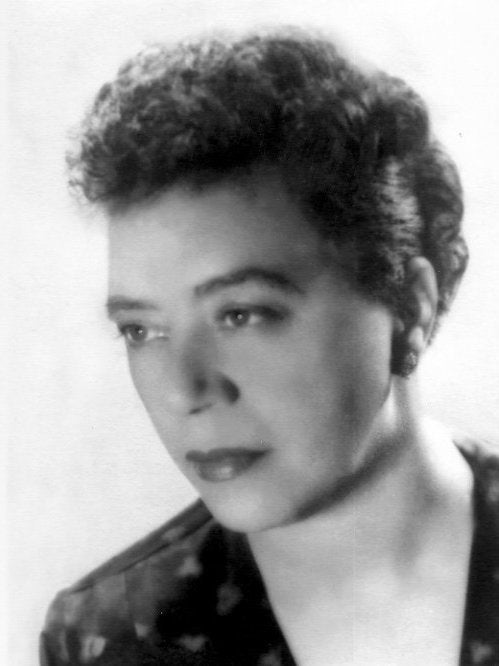From Joni Mitchell to James Taylor: How singing voices can get better with age
Recent theatre productions starring mature singers have inspired theatre critic Paul Taylor to pay tribute to the nuances and joys – rather than fear – to be found in ageing voices

The hills are alive with the sound of mature singing voices at the moment. A multiplicity of them. And what a heady and heartening hubbub they are making. Gently Down the Stream, the lovely new play by Martin Sherman (best known for the classic Bent), has just finished a successful run at the Park Theatre in north London and is awaiting a transfer to the West End.
It was seeing the show in Sean Mathias’s deeply canny production that gave me the idea for this piece, which is about the expressive advantages – as opposed to the handicaps – of the ageing singing voice. And also where the maturing human voice stands in relation to other bodily processes and functions.
The voice at the centre of Sherman’s play – almost its tutelary spirit – is the late Mabel Mercer (1900-1984) who has strong claims to be the greatest cabaret artist of the 20th century. She was born in England and was one of nature’s aristocrats and a cynosure for natural rebels. Her diction pinged consonants with a clarity that even an elocution teacher might have sought to duck. She had a lived-in face that seemed to have lived on behalf of everyone. The voice did not disguise its wear and tear. And yet it was totally magical.
I chanced on her when I was 17 and became obsessed with playing her extraordinary rendition – on an album she shared with Bobby Short – of the very contemporary Joni Mitchell classic “Both Sides Now”. This was no ingenue. The voice more like a refined bomb site – embattled, bewildered and oddly beatific in its unflinching musicality. Supported by her indomitable technique, she had about enough breath to land at the end of each line: the courage it took was audible. But I was shocked to realise, watching and listening to Mathias’s production of Gently Down The Stream, that I had never heard her voice in its prime. Snatches of this can be enjoyed throughout Sherman’s play which charts the present day affair between two men (Beau, 61, Rufus, 28) who encounter each other on Grindr and find they have Mercer in common. Beau, who hails from New Orleans, was her accompanist, for a short time. Rufus wants to know more about what she meant to the gay community and why.
If there’s a fault, it’s the lack of any emphasis on “Both Sides Now”. “So many things/ I would have done/ but clouds got in my way.” Joni Mitchell’s lyric (from her album of the same name) is amazingly suggestive. Your average coward would probably sing “could have done”, laying the blame on outer circumstances rather than on a failure of the will, or muzzy pusillanimity. Joni Mitchell is a genius – Blue is one of the greatest albums by a solo artist, male or female, ever. But though she sang interpretations of the song (Judy Collins’s cover version made it a hit in 1968), she came to feel that she was floundering and miscast with this particular (trademark) material, having not yet lived enough.
Mitchell went to see Mercer perform “Both Sides Now” in her New York nightclub and rushed backstage to give her a rave review. But Mercer failed to recognise her as the author and bridled, more than somewhat affronted, when Mitchell blithely told her of how the song needed someone pushing 70 to do it justice. I love the idea of this platonically perfect pairing coming a cropper on a piddling point of vanity about age. But how instructive.
In the States, someone is bound to have devised a course on “how to ‘belt’ while fully Botoxed” and you can doubtless see the terrifying results on television every night. I put this dystopian vision to Nigel Lilley, the brilliant conductor and musical director of the National Theatre’s triumphant production of Sondheim’s Follies that is half way through its second run at the London venue. “There is no Botox equivalent to halt the ageing of the voice,” he responds, “although great technique will certainly stand you in good stead.”
Follies is the supreme example in musical theatre of old and young voices coming together in a debris-strewn pas de deux between past and present. The show takes the form of a reunion in a partly demolished Follies theatre awaiting the crunch. Lilley expands on the creative challenges.
“We were aware when casting it that, aside from the central quartet, many of the characters get very little dialogue in proportion to the amount of singing airtime they have. So we needed to search for brilliant, distinctive singing voices which immediately suggested to the audience a (sometimes very long) life on stage and, in addition, when we started learning the material, we talked a lot about that sensation of having sung a song for a lifetime – the notion of muscle memory – how your mouth might go to form the next vowel shape [of a number]. Unconsciously.”
This sensitive investigation into an ageing singer’s physiology pays hefty emotional dividends. One of the summits in a show of non-stop high points is “One More Kiss”, the ecstatic operetta duet between the elderly Heidi (the great Felicity Lott) and her ambitious younger self, placed just when the acrimony in the other reunited pairs is coming to a head. The bittersweetness of “never look back” starts to sound like wisdom in a duet that is a rapturous display of envy, emulousness and professional cooperation.

But listen to Lilley on the careful way both the composer and the production manage our responses at this point. “One of the great devices of ‘One More Kiss’ is the very tentative opening – almost pianissimo over that shimmering violin tremolo. Obviously, Dame Felicity has tremendous vocal ability, so it’s a case of slightly wrong-footing the audience by singing softly on the breath to begin with so that when her voice really opens up 16 bars later we get a really great payoff.”
Joni Mitchell had a big 75th birthday bash in November and the artists paying tribute to her with their fervent cover versions of her hits gave rich tribute to the idea that ageing voices should bud again rather than stick in the throat. There were some truly egregious examples, such as a spectral but still astonishingly handsome Kris Kristofferson brokenly talking his way through the brilliant “A Case of You”, while Brandi Carlile assumed Mitchell’s trapeze-and-bungee-jump vocal manner as of right. Mitchell herself has given up singing now because of poor health, but she did in later years perform a stunning (bereft, bewildered, stoical – and tight-lunged) version of “Both Sides Now” on a drifting bed of strings.

The best of this category in which an artist revisits material from pop’s earlier history with the modest wisdom of hindsight is James Taylor’s version of The Beatles’ “Here Comes the Sun” at the Kennedy Centre Honours in tribute to the great cellist (and his friend and sometime collaborator) Yo-Yo Ma. Backed by a children’s choir and a bunch of gobsmackingly talented musicians, Taylor gives the song a metrical makeover. Where (in one of the rare missteps in her career) Nina Simone plants a kittenish wrinkle on the repeated phrase “It’s all right”, Taylor emphasises the middle word as if, after all he’s been through with addiction and depression, he is celebrating this moment of respite. It’s beautifully wry and unassuming.
A world in which voices did not age would be a Happyville horror. Let Joni Mitchell have the last word on the radiant/rueful checks and balances of the voice’s journey into maturation. From “Both Sides Now”: “Well something’s lost, but something’s gained/ In living every day”.
Join our commenting forum
Join thought-provoking conversations, follow other Independent readers and see their replies
Comments
Bookmark popover
Removed from bookmarks